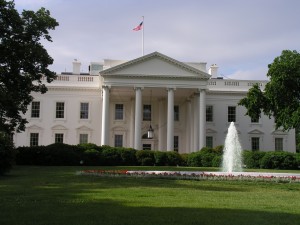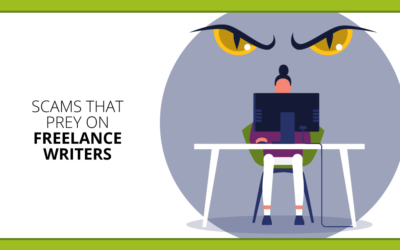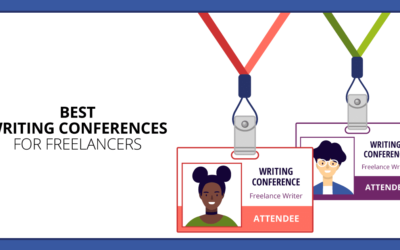
It’s a great time to look at this opportunity, too, as many municipalities are downsizing staff and outsourcing more.
I recently landed my first government contract rewriting two large annual reports for a regional transit agency. It paid five figures. I’m here to tell you this is a sector worth checking out.
When most writers think “government contract,” they’re thinking federal government. The process of qualifying to bid on government contracts is a bit onerous, though the Obama administration has recently taken steps to streamline it. And Allena Tapia, the freelance writing expert on About.com, has written a whole guide on how to register as a federal contractor. So really, there’s no excuse anymore.
There’s also a common misconception that if you’re not located in Washington D.C., you won’t find any gigs. In fact, our government has branch offices and military bases just about everywhere you look. Once you’re registered as a contractor, you can set up keyword alerts on websites that track government opportunities, so you know when there is a gig you might be a fit for, and could put in a bid.
Beyond the federal government, there is plenty of opportunity in state, county, city, and other local and regional agencies. As it turned out, my first agency found me through some online searching, and reached out to me.
They then held my hand through the whole bid process, helping me understand what they needed to see and giving me an idea of their budget so my bid wasn’t totally out of the park.
Here are my tips for how writers can break into government contracting, and succeed at these gigs:
- SEO the crap out of your LinkedIn profile. I can’t stress enough how many big companies and government agencies are looking for freelance writers through LinkedIn. Completely fill out your profile, add your Skills (thanks to Susan Johnston for turning me on to this tip!), and cram your bio with every type of writing phrase a prospect might be searching on to find a writer like you.
- Have a rockin’ writer website. The woman who hired me for an agency gig picked up the phone after being impressed with what she found on my writer site — namely, lots of clips, a listing of awards, and testimonials.
- Get your business house in order. You will usually need a registered business name (even if it’s just Mary Smith Writer) and state license number, a federal tax ID number, and for federal gigs, a Dun & Bradstreet or D-U-N-S number. In other words, you need to smell legit.
- Have a track record. Writers who have been freelancing for several years will have an advantage over newbies. These are probably not the gigs you’re going to get off the bat, unless you have a personal connection at an agency.
- Know other writers. The volume of work required and deadline for the project mandated that I subcontract out about half the work — it was just not going to be possible for me to write it all myself on their timeline. I networked madly and went through a half-dozen writers before finding one who was available, could come on-site for at least one day and who had the expertise needed. I also had to refer them other writers, as government contracts need to be competitively bid, and they hadn’t been able to find anyone else on their own! So I got to encourage a few writer-friends to bid against me. Sort of an interesting dynamic. But if I hadn’t known anyone to send them so they would have multiple bids, the contract might have been withdrawn.
- Have business insurance. This was a requirement of my contract. I had to add the agency’s name to a rider on my policy for the duration of the work. Luckily for me, I had recently written about why home-based business owners need business insurance and learned I needed this coverage, so I was in the process of obtaining a policy when my prospect called me. I was able to get the policy in place and add them. I had the strong sense we couldn’t move forward without this.
- Prepare to hurry up and wait. This is government. It moves slowly. Be clear about the deadlines you have and how much time you need to get things done. My contract had a drop-dead date — the reports needed to be presented at a board meeting on a set date. Turned out, the agency couldn’t get some portions of the work back to us in time and ended up having to do some of their own rewrites. So we got paid some for not rewriting, since it was a set-hour contract. Works for me.
- Expect snags. My experience was that the person who spearheaded our project was very enthusiastic about bringing in outside writers. Others at the agency whose input we needed were not so game. I had one source I was steered to tell me flat-out he was unwilling to share a single thing about what his division was doing. Just stay professional as the surprises unfold, and report problems to the person who is playing the lead role. Ask them how to proceed, and let them whip their people into shape.
- Speak truth to power. If the many cooks seem to be spoiling the soup, speak up. You were brought in for your writing expertise. If the message or tone are wandering off track, it’s your job to fix it. This is your writing sample in the end, so keep advocating for what would make it great.
- Get referred and rehired. Once you’ve done one government contract, be sure to keep that relationship. Most agencies have dealings with many other agencies in their region. Let them know you’d appreciate a referral to any other government bodies looking to hire a freelance writer. Also, clear a prominent spot on your writer site for your government clips.
Have questions about writing for the government? Leave a comment below and I’ll do my best to answer.










